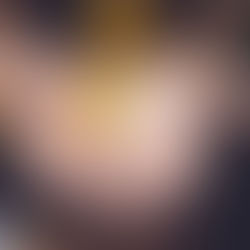Mudras: The Yogic Practice of Gestures
Mudra, the yogic practice of gestures, is an important part of my teaching. Many mudras are gestures we do with the hands, but others utilize the arms or the whole body. Many yoga asanas are also mudras. We can practice mudras to connect with our chakras, to help direct our prana, to decrease fatigue, help with anxiety or depression, or any number of other challenges we look to our yoga practice to help us with. And the nice thing about mudra practice is that it's an easy thing to do in your life—in the car (if you’re not driving), waiting in line, etc. Mudra can also support our pranayama, chanting, and meditation practices.
Adhi Mudra is all about cultivating stillness. It can be nice to support a meditation

practice, to calm anxiety, or to stay centered in stressful situations. (My teacher does it at the dentist’s office while she's getting her teeth cleaned.) This one can lower blood pressure, so if your blood pressure is already low this may not be a
good mudra for you.

How to do it: bring the tip of your thumbs across your palms to the base of your ring fingers, then fold your fingers over your thumb, making a loose fist. Rest your loose fists, palm side down, on your thighs or your knees, and sit with your spine tall, 30 seconds to 5 minutes or more.
Literally, when I do this mudra, I feel my
energy drop from my head to my hips with a kind of "FWUMPH" like sinking into a snowbank.
Vyana Vayu Mudra is wonderful for people with MS or Parkinson’s—neurological problems that affect the extremities. In yoga, we talk about prana, the life energy connected with our breath. Prana travels around the body in vayus, which I think of like jet streams. There's one that goes from the center of the body up through the crown of the head, one that goes down, one that circles like a belt around the belly, and a few others. Vyana Vayu starts at the center of the body and travels out in all directions toward the extremities. So, if we have trouble with the neurological connections to our hands, legs, and/or feet, strengthening the flow of prana through Vyana Vayu can be helpful.

How to do it: Bring the tip of your right thumb to the tip of your right ring finger, and the tip of the left thumb to the tip of your left middle finger. Yes. It's asymmetrical. Yes, it's fine. Your other fingers are extended as available. (If they don't extend a lot by themselves, it's fine. This is not a hand exercise.) Again, 30 seconds to 5 minutes here, or longer if you're meditating and you want to.
My favorite book on mudras is Mudras for Healing and Transformation by Joseph LePage. At the time of this writing Amazon.com offered a paperback version for $30 and a Kindle version for ~$13.
Enjoy your exploration!
Mudras: The Yogic Practice of Gestures
by Abby Foster







































